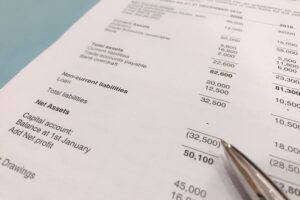A reviewed financial statement (FS) is a set of financial statements that a certified public accountant (CPA) has reviewed. In a review, the CPA only performs analytical procedures and inquiries to check whether the FS has no significant modifications and is compliant with the US GAAP. Unlike an audit, reviews aren’t extensive and detailed. They…
What is
Loan-to-Cost Ratio: What It Is & How to Calculate It
The loan-to-cost ratio, also known as LTC, is a calculation that’s used to evaluate the costs of a commercial real estate project. It is calculated by taking the loan amount of a commercial mortgage and dividing it by the property’s total project costs. It is reflected as a percentage. Lenders use the LTC ratio to…
Special Event Insurance: Cost & Coverage
Special event insurance is primarily a liability insurance policy for a business, vendor, or individual hosting an event. The policy provides coverage for injuries and damaged property, with additional options like weather cancellation. Unlike other policies, special event insurance is a policy with one payment, with average premium costs starting at $100 or $500 for…
What Is an Audited Financial Statement? Contents & Uses
An audited financial statement (FS) is a set of financial documents examined by an independent CPA. The audit report attached to the complete set of FS provides an opinion on whether the FS presents fairly, in all material respects, and on the company’s financial position, operations, and cash flows. It is mandatory for publicly listed…
Social Media Influencer Insurance: Cost & Coverage
Social media has become an important part of building brand authority and driving sales. Social media influencer insurance is coverage that protects the content creators who drive those results. The primary coverages to consider are professional liability ($750 annually for social media insurance) and general liability (around $350 annually). Depending on the size of your…
Predictive Scheduling Laws Per State: Employer’s Guide
From state laws to city laws, learn more about how predictive scheduling laws are changing workplaces and employee scheduling. Plus, new bills are currently in place to add laws to more states.
Predictive scheduling is the process of giving employees ample notice of their work schedule so they can plan around working hours. These laws ensure that workers are not scheduled hours before a shift. Early on, predictive scheduling laws only applied to workers in certain industries, like restaurants and retail. But as time has gone on…
What Is Bonus Depreciation? How It Works & How to Calculate
Bonus depreciation is a form of accelerated depreciation that offers an immediate tax deduction, speeds up tax savings, and makes an asset that you placed in service more affordable.
You may see bonus depreciation referred to as the special allowance, the additional first-year deduction, or IRC §168 (k) depreciation. Congress created this deduction to stimulate business activity by encouraging business owners to purchase qualifying assets. Without the use of a special accelerated depreciation method, the deduction for the purchase of a business asset would…
What Does IRS Code 570 Mean on an IRS Transcript?
If you see IRS code 570 on your tax transcript, this means that the IRS has frozen your federal income tax refund, pending further internal action. This transcript code (TC) means that there may be an anomaly or discrepancy in the information the IRS has on file for you and that further investigation must be…







